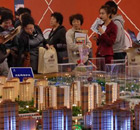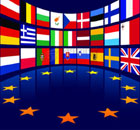Highlights
Gold standard for China
(China Daily)
Updated: 2010-03-01 09:43
 |
Large Medium Small |

The 45-year-old businessman, who is originally from Guangdong province and has a master's degree from Columbia University in New York, has successfully brokered marketing deals with the Yankees and the Rockets, and in June last year his company won the contract to promote MLB in the Chinese youth market.
He said China is shifting its focus from Olympic medals to boosting its professional leagues to attract more investors.
"I knew the self-confidence and enthusiasm for sports would definitely keep rising after the Beijing Olympics (China topped the Games medals table in 2008) and making the day of the opening ceremony National Fitness Day was a very positive signal," said Huang.
To make money from Chinese sport, however, people need to be patient. "Investing in sport is not like investing in real estate. It always takes about five to 10 years to see any returns in sport," he said. "It's OK to look forward to another Yao Ming in the NBA but our own leagues deserve more attention and effort to help them grow.
"Investors also have to cooperate with government here. That's the rule you work with in China, and a lot of foreign investors are not fully aware of this and so they fail easily."
He Wenyi, director of Chinese Sports Industry Research Center, welcomed the introduction of private capital into the country's professional leagues, citing the QSL deal as a hugely positive step.
...
"Hopefully, it will set an example for the CBA and other leagues in China. We need diversified investment in the management of leagues and the sports industry as a whole," he said. "It is fundamentally wrong to develop the sports sector solely through the State General Administration of Sport as the industry relates to so many fields.
"We urgently need to break the administrative monopoly, which would surely encourage more resources to flow in."
Creating a successful product is only half the battle, however. The next major challenge is pushing China's brands abroad, according to Niu Haipeng, a professor on marketing at the Renmin University of China.
"It will take a long time for Chinese leagues to be as influential as the NBA or soccer leagues in the Europe. Although the approach to setting up a brand image for a professional league is different from those for other products, it follows the same principles," he said.
A product needs to be of good quality, such as the NBA, which has the best basketball stars. However, Niu warned against relying on stars from overseas to boost the market. "You need very strong local players. If the foreigners are not helping the homegrown talent to grow, a league will not make any progress."
Once China has a quality product, the country needs to promote it, all the while continually adjusting the product to meet the needs of the market, he said.
"The government's involvement in the management of leagues is surely bad for its development. When it is a real commercial thing, stakeholders will try their best to meet the needs of the consumers by providing various products so they can make a fortune. This in turn makes the league more popular. But the government is not always driven by money," he said. "Also, administrative power over a profitable business always leads to the risk of corruption, like with the soccer scandal."
The establishment of National Fitness Day by the central government was a good move, agreed analyst Yi Jiandong, but he warned the country still needs to replace simple advocacy with firm preferential policies and mandatory regulations. "I used to live in a housing estate called Yuxin, a neighborhood of about 20,000 people in Beijing. All we had was eight ping-pong tables and a 200-sq-m gym for exercise," he said.
He Wenyi added: "It's pathetic. If the government really wants everyone to have access to sport they should have rules about the proportion of the public recreational space in all real estate projects. There is no such thing at the moment."
Tax rates were also a problem, said the research director, adding that some sports clubs are charged the same 5- to 15-percent rate as companies in the entertainment industry, such as pool halls and bowling alleys. The tax rate for golf clubs is about 20 percent, he said.
Liu Fumin, head of the finance department for the State General Administration of Sport, told China Daily that a plan to accelerate the development of the sports industry, which took four years to draft, has been submitted for approval to the State Council. However, the proposal still only contains voluntary guidelines, he said.
...
There is certainly no question that the Chinese have a passion for sport. The Beijing Olympics was a sell-out success and, although the butt of many jokes after their dismal show at the 2002 World Cup in South Korea and Japan, the national soccer team also has a strong fanbase.
And like anywhere, China's young sports viewers are desperate to emulate their heroes.







